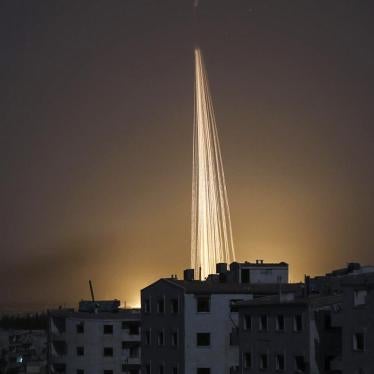Wellington, New Zealand
Delegates, colleagues and friends,
Let us have the strength and courage and conscience to live up to the words we have just heard from cluster munition survivors Soraj and Branislav. We thank them for their willingness to share the truth of their experiences.
For the Cluster Munition Coalition (CMC)our main hope and expectation this week is that all governments present will be prepared to endorse the Wellington Declaration by the end of the week and to forward the strong draft treaty text to Dublin for formal negotiation in May.
Let there be no doubt about the importance of what we are engaged in here. With landmine use now under control, cluster munitions pose the gravest danger to civilians of any conventional weapon. This treaty may be the most effective and far-reaching measure that states can take to protect civilians both during and after armed conflict.
You are to be congratulated for your efforts to date. Governments are answering the call of civil society on a humanitarian imperative. Governments are being responsive to the demands of the people they represent. This effort is in no way anti-military, it is simply pro-humanity.
This is a powerful mix of disarmament and humanitarian law, created by a self-selecting group dedicated to ending the suffering caused by cluster munitions-to preventing future suffering. Again, you are to be congratulated.
We understand that there are still differences about what should and should not be included in the future cluster munition treaty. That is natural; you have not yet reached the point of formal negotiations. The CMC is pleased with some of the treaty text changes from Lima to Vienna to Wellington, and not pleased with others. Language can be clarified and strengthened in some areas, including victim assistance, clearance, cooperation and assistance, transparency, and the definitions. We have concerns about the 6-year stockpile destruction deadline and the lengthy 10-year extension period.
But overall, the draft text is very strong. The CMC believes that the existing text forms an excellent basis for the negotiations in Dublin and should be forwarded as such. There is room for improvement, to be sure, but our bigger concerns are possible weakening amendments, particularly in three areas: exemptions to the ban, a transition period, and interoperability.
Some of the proposals that have been floated or discussed on these matters would cause the CMC to withdraw its support for the treaty and the Process.
Some are talking of broad exceptions for submunitions with self-destructing mechanisms - but all evidence shows that self-destructing mechanisms themselves fail far too often and still leave unacceptable risks for civilians.
Some are talking of a maximum failure rate requirement - but all evidence shows that there is no relationship between the failure rate under testing conditions and the failure rate in combat. A failure rate approach cannot be effectively monitored, or verified, or uniformly implemented; it is fatally flawed.
Some are talking of a transition period, during which banned cluster munitions could still be used. Whether it is ten years or one year, this concept fundamentally undermines the integrity of the treaty. How can you keep using a weapon you have agreed must be banned because it causes unacceptable harm to civilians?
Some are talking of deleting or seriously compromising the prohibition on assistance with any banned act. This reflects concerns about joint military operations with a state not part of the treaty who might use cluster munitions, notably the United States. We believe there are practical solutions to these "interoperability" concerns, based on the Mine Ban Treaty experience, but gutting the treaty text, and implying acceptance of ongoing use, is not among them.
The integrity of the treaty is the key. Some speak of a "trade-off" between the strength of the treaty and who is willing to sign. But this is a trade with a high price. In a very real sense, it is just trading away the lives and limbs of future cluster munition victims.
So dare to be strong, to be bold, to strive for the treaty that will make the biggest difference in protecting civilians from the ravages of war. Dare to resist the diplomatic impulse to seek the comfortable compromise that may allow you to slap each others' backs in self-congratulation, but not to look cluster munition survivors in the eye and say you are proud of what you have done.
The Oslo Process has been different and must remain so. You have done stunningly effective work in an almost unthinkably short period of time. Let us bring the effort to fruition with the strongest possible treaty without loopholes and without delays.
Thank you.






